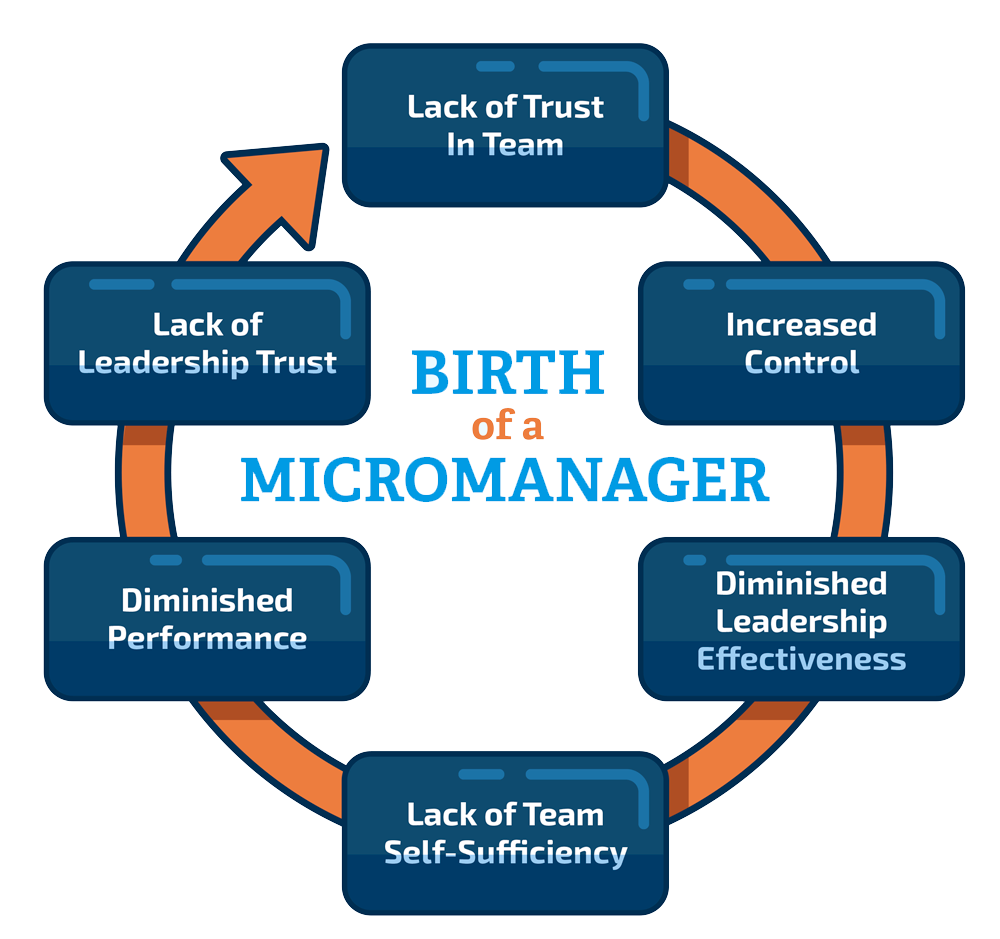Picture this: You’re busy at work, and suddenly feel a warm waft of air on your neck.
You’re being watched.
Every mouse click, every key pressed on your keyboard is being observed.
Suddenly you’re sweating and worried that you might be doing something wrong. You start picturing yourself getting fired and wondering what you'll do next.
Your manager tells you: “Don’t forget to do tasks A, B, and C.”
“Okay,” you reply, annoyed because you were just about to complete them. However now it seems as though you’re behind on your tasks and need to be told what to do.
This concept is known as micromanaging, and it plagues IT Helpdesk support teams.
The reason many IT helpdesk support managers micromanage is because they believe that the best results are achieved when they’re watching over what their team are doing.
Is Micromanagement Bad For Your MSP Team?
In one word: Yes.
Let's explore why you should put an end to micromanagement if you want your IT Helpdesk team to succeed.
Micromanagement is often not easy to spot. Most micromanagers don't even know they’re micromanaging. So, let's first outline some key indicators to look out for. If you relate to any/all of these signs, there is a high chance you're either micromanaging or being micromanaged.
Before we get into the telltale signs of micromanaging, let's remember that normal management is good. We're not trying to convince you that you shouldn’t manage your IT helpdesk support team. Quite the opposite. But the path to becoming a better manager is not micromanaging, but being able to provide your team with the freedom, training and tools to do their best work.
Are You A Micromanager?
Most micromanagers don’t start as micromanagers. They don’t enter their role with a view of having complete control over what their team is doing. It usually happens slowly and organically.
The usual way micromanaging creep starts is when managers let their team complete a task with no input from them.
In this scenario, one of two things might happen:
1 - The team may panic due to the lack of guidance and reach out to their manager for support.
2 - The team will give it their best shot without supervision, but miss the target.
In either case, this will create a negative feedback loop where the manager will start to think that without their help and intervention, the work just won’t be completed.
Whether the IT Helpdesk team had to ask for help during the task, or gave it their best shot and failed, the manager's aim should not be to reprimand and monitor what the team is doing, but instead, provide them with the training and skills they need to do their best work.

How To Stop Micromanaging
A good manager should empower their team, not cause them to cower at the thought of presenting their work or results.
Being micromanaged goes against everything that a good IT helpdesk support organization should stand for. It’s the job of a good support team manager to ensure that the helpdesk team has all the necessary resources available to help customers.
Failure to do so will lead to customer support reps becoming disengaged and eventually lead to burnout.
To avoid unnecessary burnout from micromanagement, you want to identify managers who fail to delegate. Instead, you want to foster a management style that ensures that all your team members are perfectly capable of handling their responsibilities without excessive supervision.
There is a big difference between micromanaging and accountability.
On the one hand, you may have managers who are overly involved in their team's day to day work, never letting them complete a task without first reviewing it with them.
But on the other hand, you may have managers who are bad at holding their teams accountable.
A good manager needs to sit somewhere in the middle.

When you fail to keep your team accountable for their responsibilities, it enables some team members to free-ride off the success of others.
How To Stop Micromanaging Checklist
If you want to make your team more accountable, but avoid micromanaging, here are a few things to try:
1 -Make sure everyone has clear expectations they can achieve.
This means that everyone knows what is expected of them and what they must do to produce the best results.
2 - Expectations should be measurable so that employees are able to assess their own performance and understand what steps they should take to get where they need to be.
3 - Try not to measure too many things. Focus on some key indicators. The more aspects of a job role you track, the less likely it is that your team will fully comprehend what it is they need to do to succeed.
4 - Remember, as a manager, you are accountable for your team. So if you want your team to be responsible, you need to lead by example.
Giving your team the resources to become accountable for their own work gives them a certain degree of responsibility, which in and of itself is a huge motivator.
Although it’s important to be involved in your team’s workflow, you want to keep track of how involved you are in the day-to-day running of things.
Unless there is sufficient reason, if you’re checking in with your support team every hour to find out what they’re doing, you’re monitoring too closely.
There’s a big difference between micromanaging and fostering accountability, there’s also a vast difference between monitoring and measuring.
You can measure data. This is good. But monitoring behavior is not as good as it leads to micromanagement.
However, there are cases where monitoring is useful. Particularly when it’s agreed between you and your team so that their performance can be improved.
Mistakes will happen. It takes a good manager to ensure that your helpdesk team learns from their mistakes.
So instead of micromanaging your support team, give them the freedom to make mistakes so they can learn from them and improve.
Provide guidance when asked, but don’t jump in to fix issues as soon as they arise (or worse - before you think they’ll occur).
How To Avoid Micromanaging?
Whether you’re working as part of a support team or managing one, you should always be on the lookout for potential cases of micromanagement.
Most micromanagers don't do it because they’re cruel or because they think poorly of their team. In many cases, it’s because they’re perfectionists who just want everything to be done correctly.
When you do notice signs of micromanagement, do your best to stop it from happening. Hold regular meetings with your team to discuss progress based on pre-set goals.
If you’re a support team manager and you notice signs within yourself that you’re micromanaging, make sure you try to focus less on the details and more on the overall progress of your team. Shifting the focus in this way causes you to align your efforts to results and outcomes, rather than on people and processes.
When you hire and develop a team, your core role, as a manager is to help them become the best they can be.
A support team void of micromanagement is a support team that will grow and support your business goals.
Are you ready to lead more and micromanage less?



%201.png?width=559&height=559&name=close-up-women-working-with-devices%20(1)%201.png)





